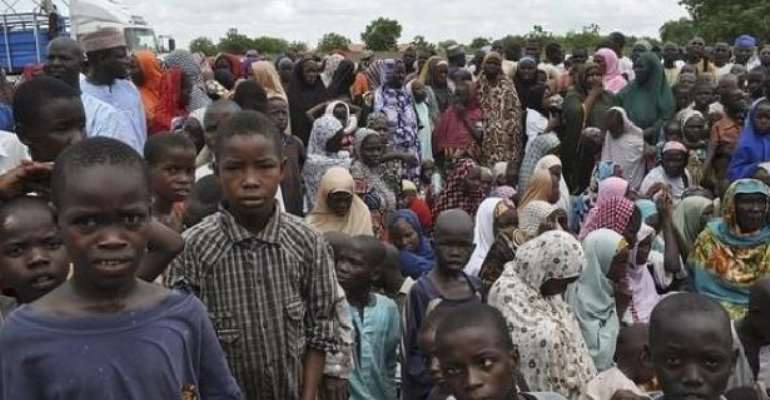Number Of Children Displaced By Boko Haram Hits 1.4 Million – UNICEF

The number of children forced to flee Boko Haram's insurgency in Nigeria and neighbouring countries has reached 1.4 million, the U.N. children agency UNICEF said on Friday.
Around 500,000 were displaced in the last five months after a sharp rise in attacks by the Islamist jihadi group, it said.
The militants have been waging a six-year insurrection to establish an Islamist state in the northeast of Nigeria that has killed thousands and displaced 2.1 million people, most of whom are children.
“In northern Nigeria alone, nearly 1.2 million children – over half of them under 5 years old – have been forced to flee their homes. An additional 265,000 children have been uprooted in Cameroon, Chad and Niger,” UNICEF said in a statement.
Boko Haram controlled vast swathes of territory across three states in northeastern Nigeria at the beginning of 2015 but was pushed out by Nigerian troops with the help of Chad, Niger and Cameroon.
Now heavily splintered, Boko Haram factions have reverted to guerrilla tactics, raiding villages for supplies and bombing soft targets like places of worships, markets and bus stations.
Attacks spiked between the end of May through July though the rainy season has seen a relative lull over the last month.
UNICEF scaled up its operations and vaccinated over 315,000 children against measles this year as well as arranged safe drinking water for 200,000 people. It has also provided schooling and counselling.
UNICEF said it has encountered funding problems after receiving only 32 per cent of the $50.3 million required this year for its humanitarian response across the Lake Chad region, creating a shortfall in measles vaccinations and other aid.
The largest concentration of internally displaced persons (IDPs) and therefore children are in camps or host communities in Borno state capital Maiduguri, the birthplace of the insurgency. While the army has freed the last few towns still under some form of Boko Haram control, IDPs are reluctant to return home.
BUSINESSDAY
